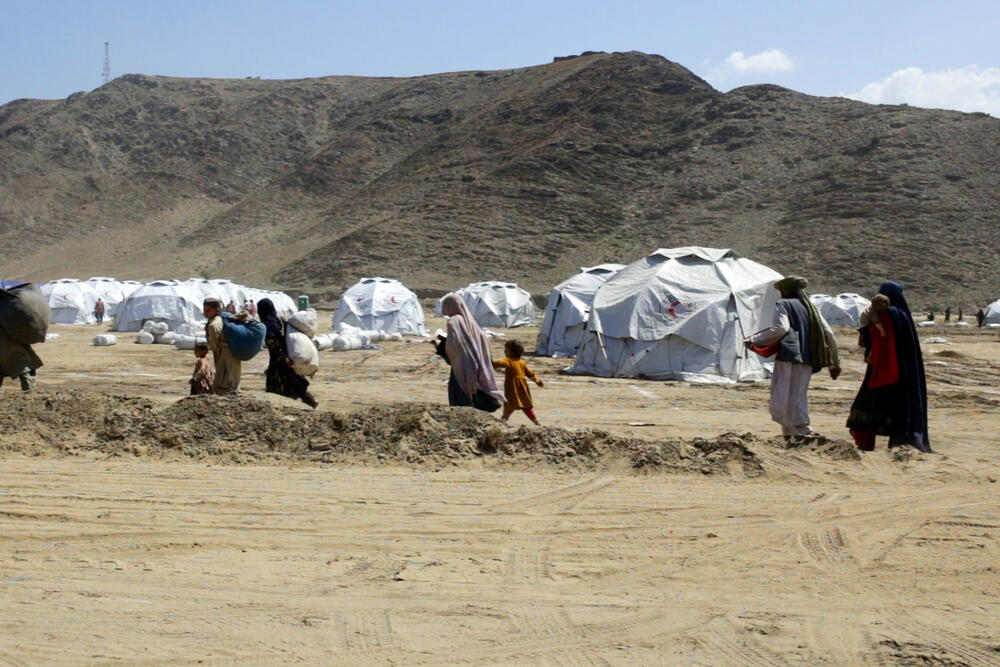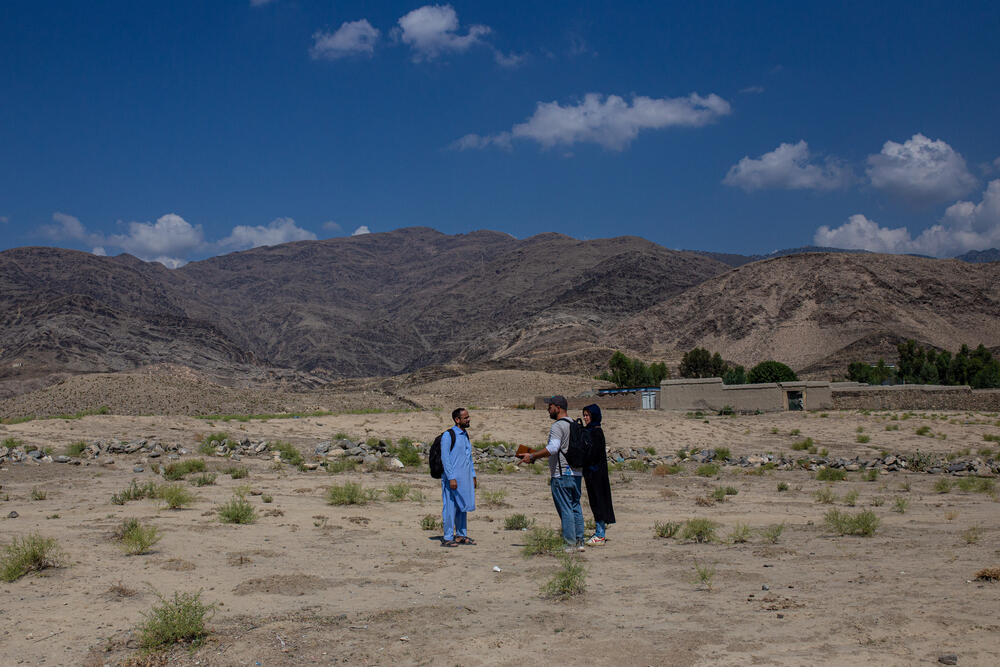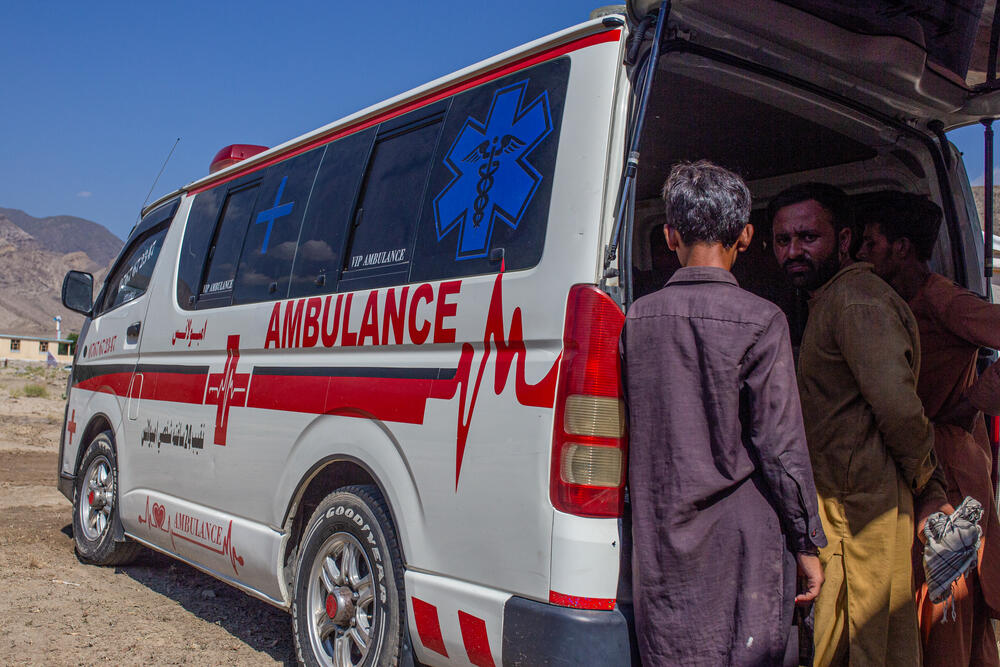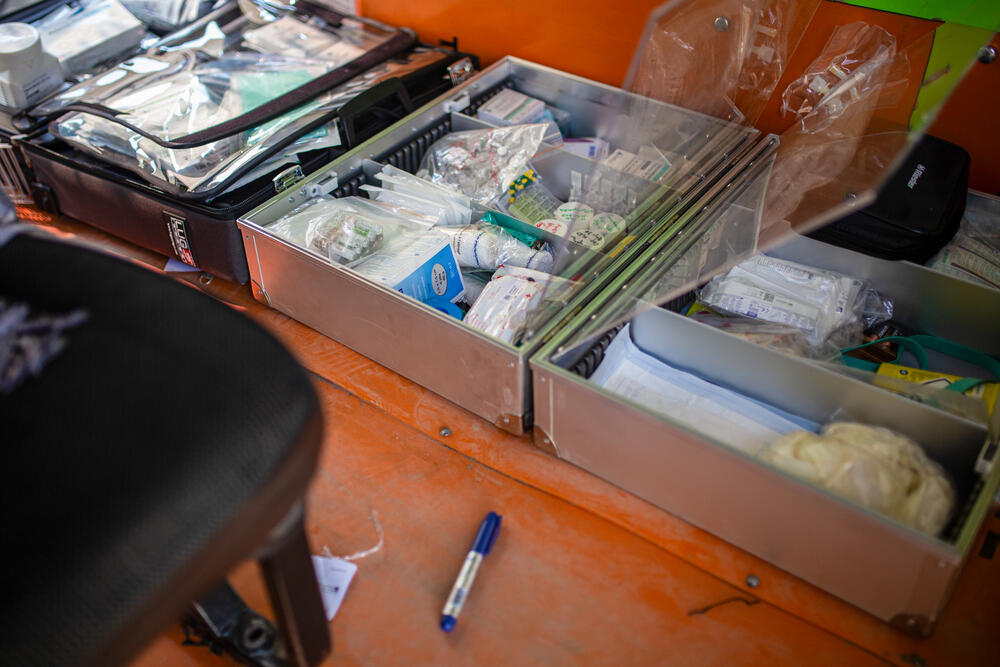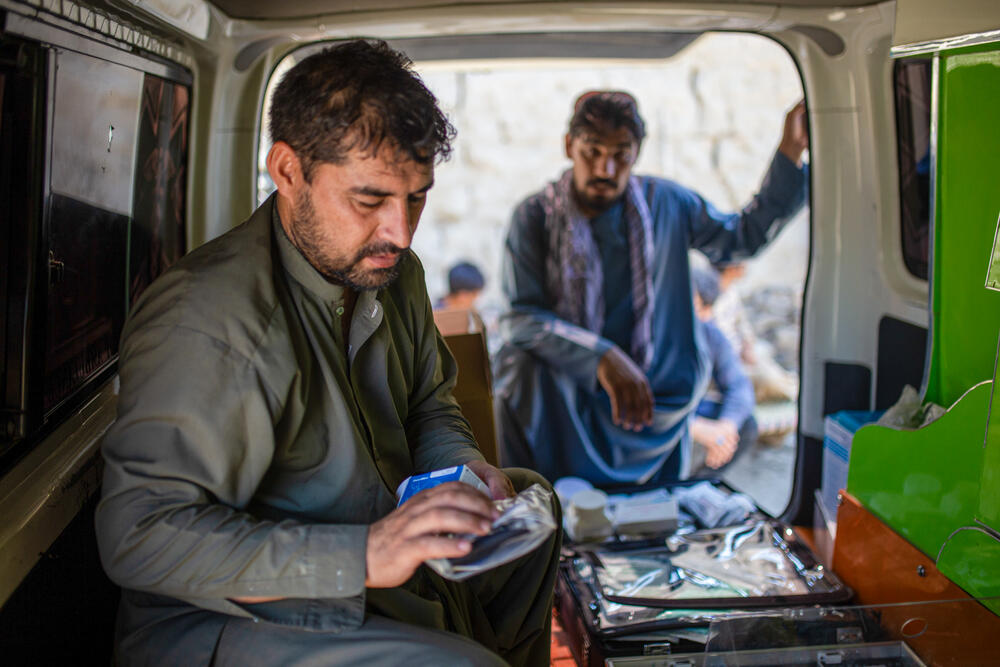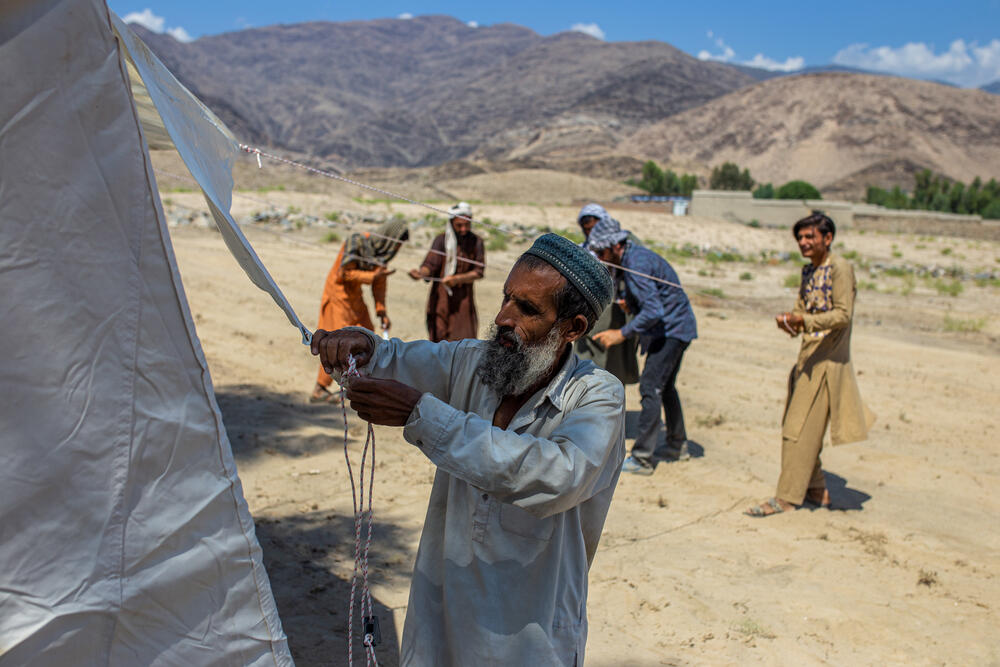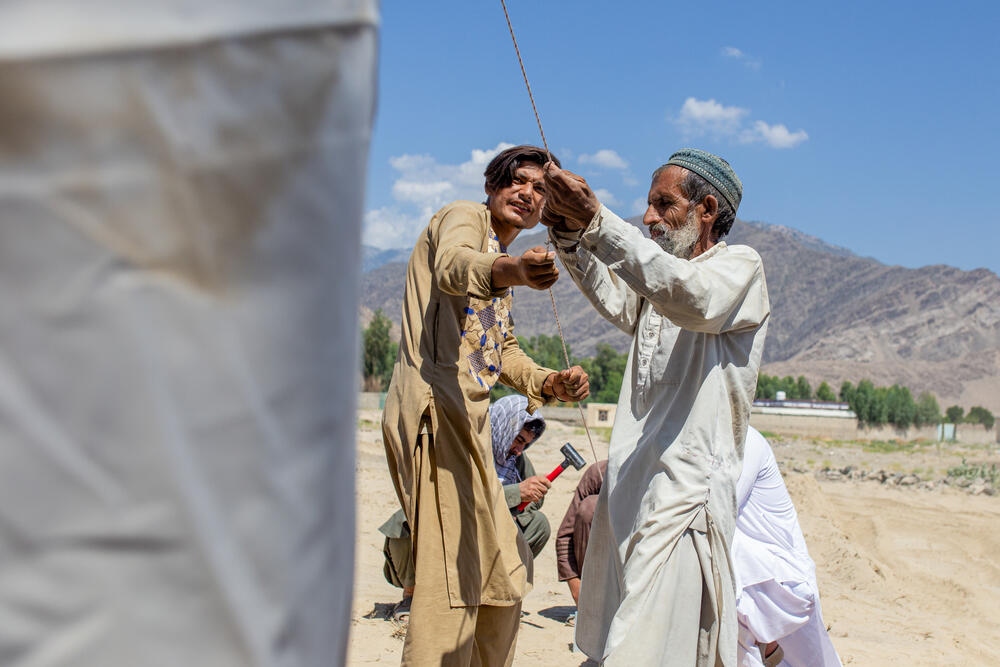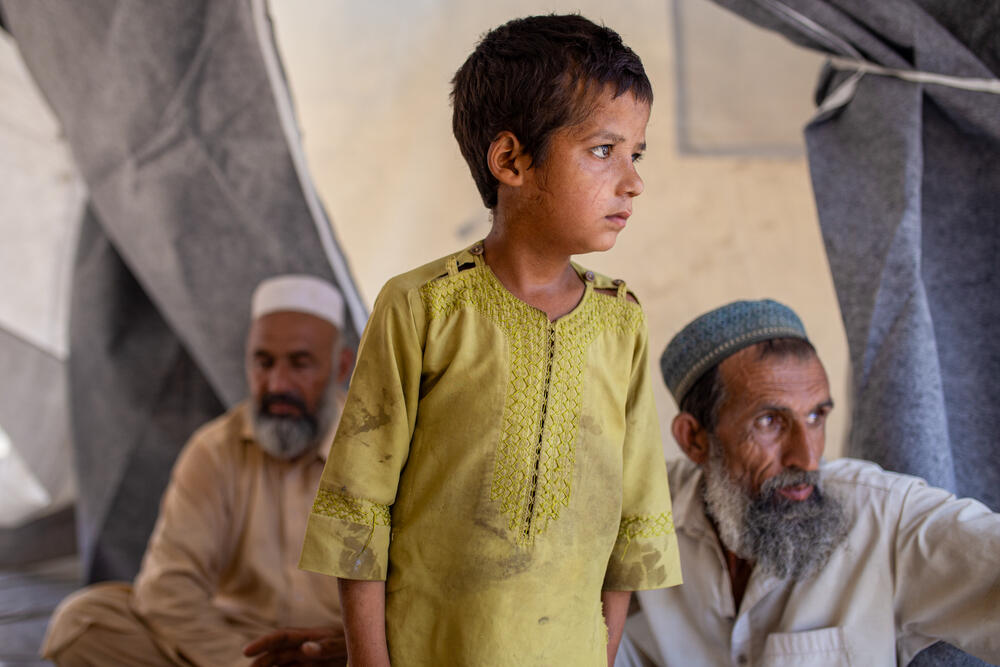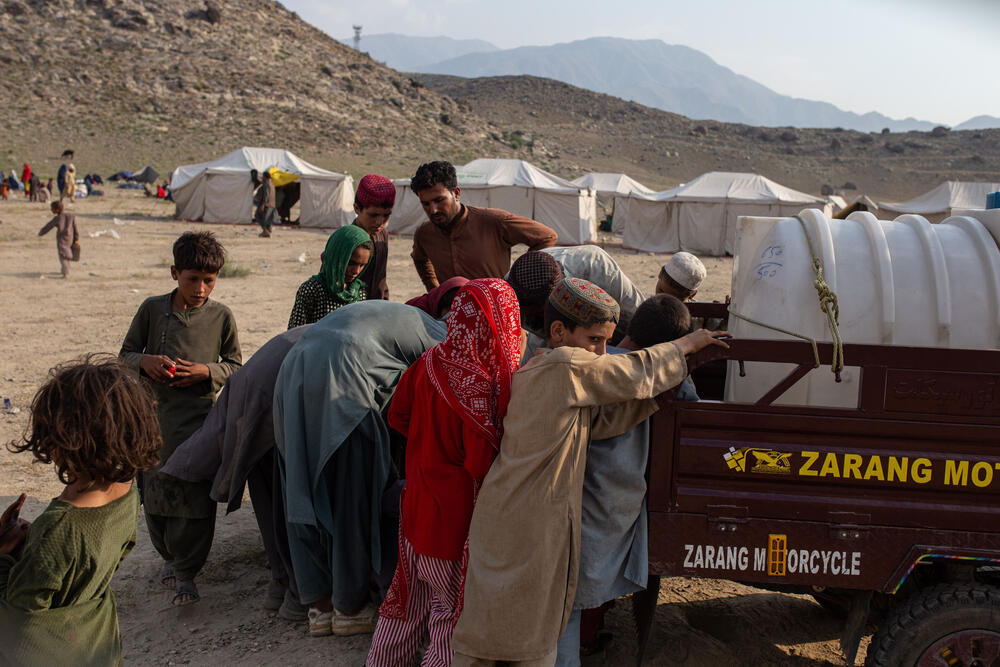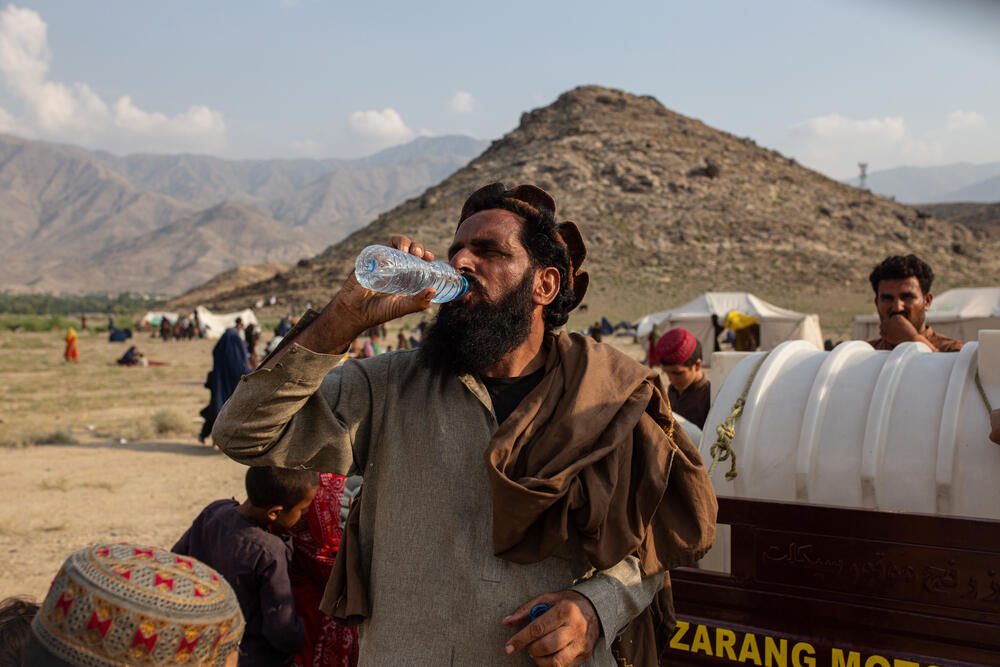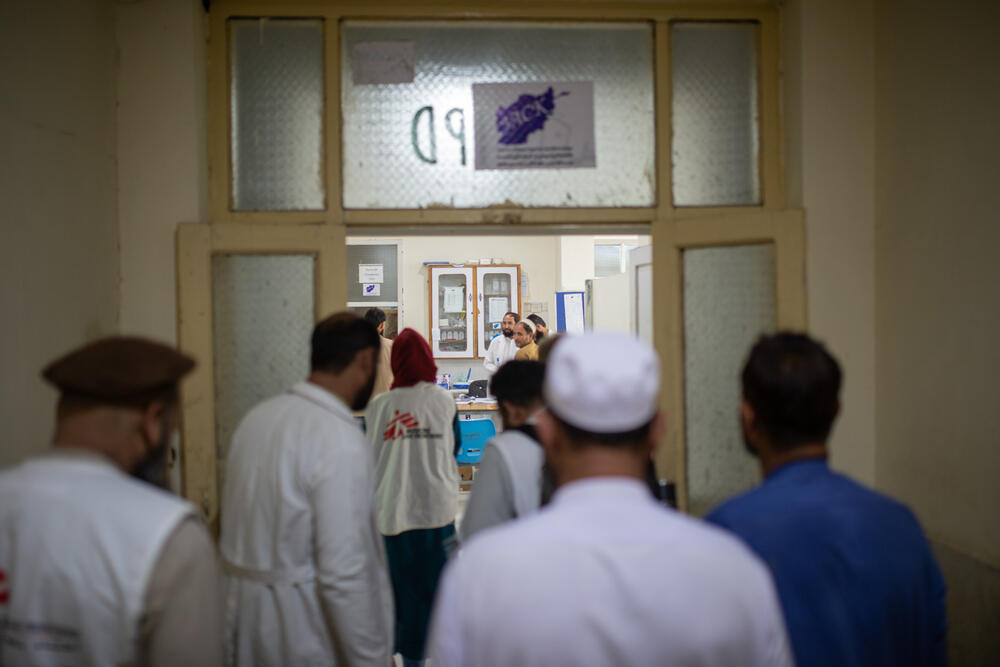Afghanistan: Behind the scenes of an earthquake response
About one thousand families have arrived at Patang camp in Kunar Province in eastern Afghanistan, seeking shelter after the destruction of their homes. The moment MSF teams reach the camp, they get to work providing essential healthcare and services.
The earthquake and aftershocks that struck Afghanistan between 31 August and 4 September have left around half a million people in need of urgent health assistance according to the UN.
To begin, MSF medical and logistical teams work together to prepare setting up tents and containers that will serve as a clinic to treat displaced people living in the camp and nearby villages.
Meanwhile, other medical teams begin treating patients. The ambulance serves as a pharmacy until the container and tents are set up. It can also be used to refer patients to the neighbouring hospitals of Kunar and Nangahar provinces.
Medical care where it's needed most
Help us care for people caught in the world's worst healthcare crises.
Ihsanullah, an MSF intensive care nurse, provides patients with medicines from inside the ambulance. Temperatures in Patang camp are very hot and medicines need to be kept in colder areas. MSF teams have built a container with ventilation to make sure the medicines remain usable.
Neighbours of Patang camp help MSF teams to set up the first tent of the clinic. This can be used as a room for outpatient consultations where medical staff can treat patients for a range of conditions in areas including wound dressing, routine vaccination, women’s health and mental health.
When Shafiqullah's ten-year-old son Mustafa developed a fever, he previously had few options. But now he is able to bring his son to MSF’s clinic where Mustafa becomes the first patient seen.
Access to clean water is crucial. MSF teams also distribute water tanks with around 3,000 litres capacity per tank and install latrines to support displaced people in Zerai Baba camp.
People don't have containers to store water so they use plastic bottles to fill and drink from the 1,200 water containers distributed by MSF teams.
Elsewhere in the region, MSF teams carry out assessments in several hospitals and medical facilities across Nangahar and Kunar provinces where they distribute trauma and emergency kits.
People in the affected communities are still traumatised, processing the loss of their homes and loved ones, and in need of basic items such as clothes, hygiene kits and shelter. They need protection, especially children, some of whom have lost their entire families.
MSF in Afghanistan
Our medical teams have continued to provide care to the people of Afghanistan throughout recent conflict and following the change of government in 2021.
